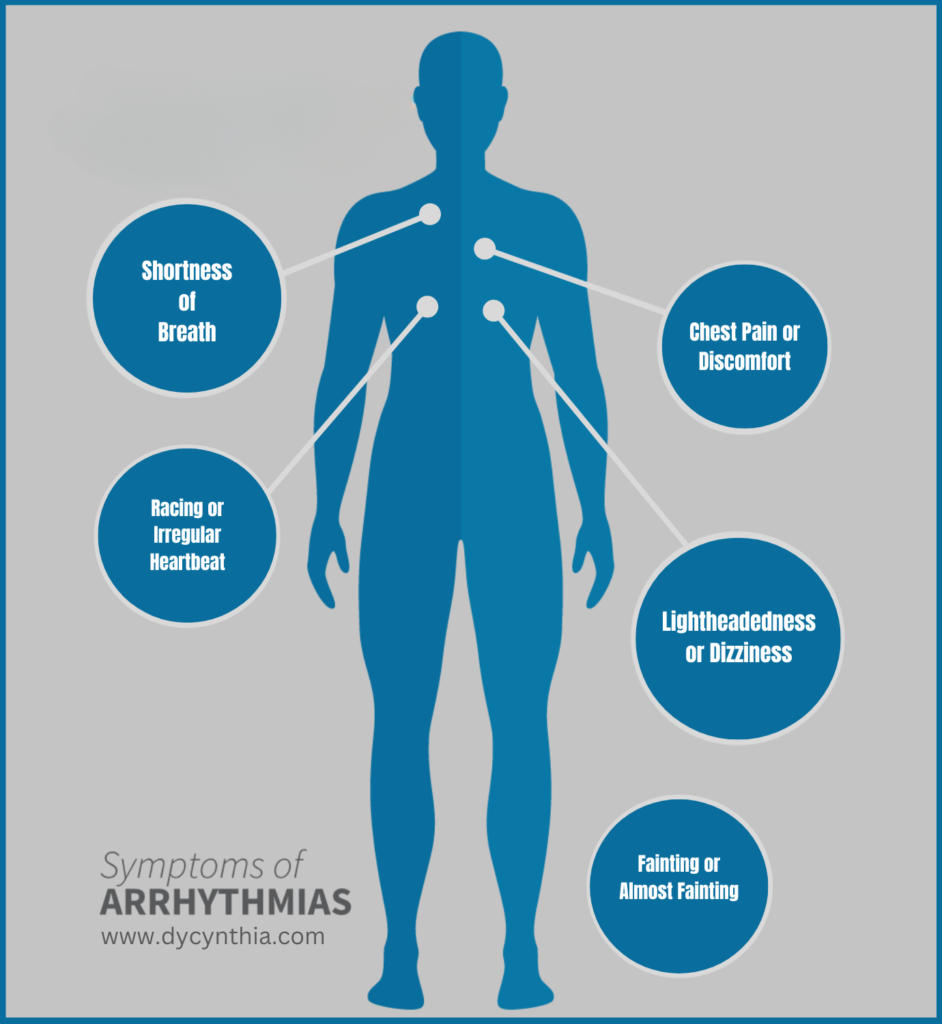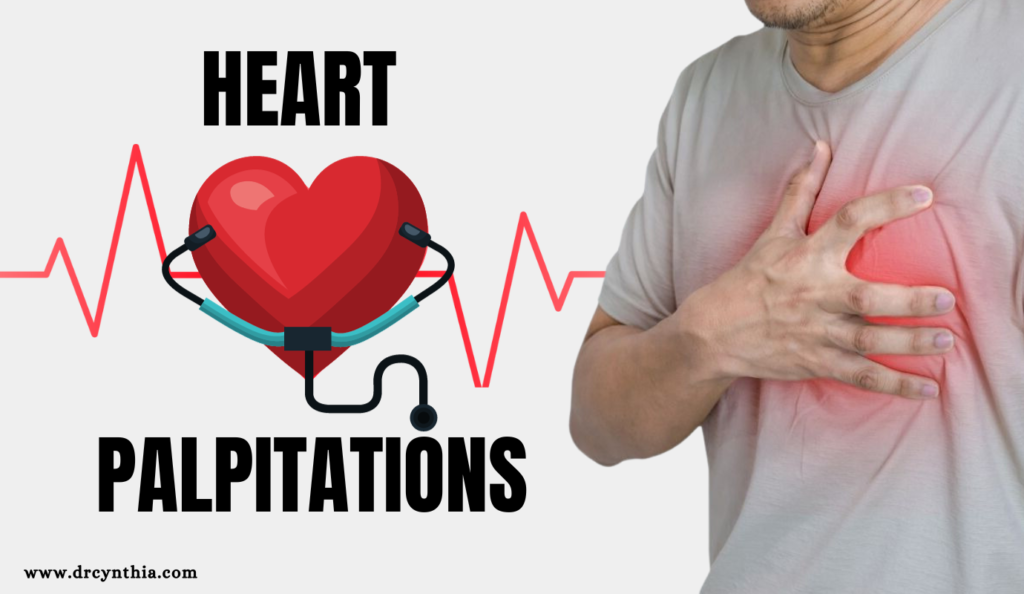Your heart, the ceaseless engine of life, beats an astonishing 100,000 times a day, pumping oxygen-rich blood to every nook and cranny of your body. But what happens when this rhythmic symphony falters, when your heart starts sending signals in the form of palpitations? Is it merely an innocent flutter or an urgent SOS from your most vital organ?
When to See the Best Cardiologist in Los Angeles for Heart Palpitations: Listening to Your Heart’s Signals
In this comprehensive guide, we delve deep into the world of heart palpitations. We explore the intricacies of this phenomenon, understand its possible causes, and, most importantly, discuss when it’s crucial to seek the expertise of a cardiologist. Book an Appointment
Understanding Heart Palpitations
Heart palpitations can be unsettling, leading to questions about seeking medical help. While most palpitations are harmless, it’s vital to identify signs of potential underlying issues. In this article, we’ll explore when to consult Los Angeles’ best cardiologist for heart palpitations, covering causes, triggers, and risk assessment. Understanding the spectrum of palpitations and seeking Complete Cardiac Care in Los Angeles ensures your heart’s well-being.
Palpitations involve perceiving an irregular or abnormal heartbeat, often as pounding, racing, flip-flopping, or fluttering sensations in the chest. While common triggers include anxiety, stress, or physical exertion, persistent or recurrent episodes may warrant cardiologist evaluation.
The Spectrum of Heart Palpitations
Heart palpitations affect individuals of all ages and genders, with a higher prevalence in women. They can arise during various life stages, including adolescence, pregnancy, and menopause. Recognizing that most are benign, it’s essential to be aware that some may indicate underlying heart conditions requiring medical attention.
Common Triggers of Heart Palpitations
Have you ever felt your heart suddenly racing or skipping a beat, as though it’s doing a dance of its own inside your chest? These sensations, known as heart palpitations, can be disconcerting and sometimes even alarming. While they are often harmless, understanding the common triggers of heart palpitations can help ease your worries and manage these episodes effectively. Heart palpitations can be triggered by a variety of factors, including:
- Stress and Anxiety: One of the most common triggers of heart palpitations is stress and anxiety. High-stress levels can lead to an increase in adrenaline, causing your heart to beat faster and irregularly.
- Caffeine: Your morning cup of coffee or an energy drink can contain caffeine, which is a stimulant. Excessive caffeine consumption can lead to palpitations in some individuals.
- Nicotine: Smoking and the use of tobacco products can lead to palpitations due to nicotine’s stimulating effect on the heart.
- Alcohol: Excessive alcohol intake, especially in one sitting, can lead to palpitations. Alcohol can affect the electrical signals in the heart.
- Dehydration: Insufficient hydration can lead to electrolyte imbalances, which may trigger palpitations.
- Lack of Sleep: Sleep deprivation or irregular sleep patterns can stress the body and the heart, potentially leading to palpitations.
- Overexertion: Strenuous physical activity or exercise that exceeds your fitness level can strain the heart and cause palpitations.
- Certain Medications: Some medications, such as asthma inhalers, decongestants, and certain over-the-counter cold remedies, contain stimulants that can trigger palpitations in sensitive individuals.
- Medical Conditions: Underlying medical conditions, including thyroid disorders, anemia, and heart conditions, can contribute to heart palpitations. It’s important to consult a healthcare professional if you experience persistent or severe palpitations.
- Caffeine or Sugar Consumption Before Bed: Consuming caffeinated or sugary foods and drinks close to bedtime can lead to palpitations when you lie down due to increased heart rate.
Palpitations after Quitting Smoking
In addition to the common triggers mentioned above, it is important to note that palpitations can occur as a result of quitting smoking. When you quit smoking, your body undergoes various changes as it adjusts to life without nicotine. These changes can include fluctuations in heart rate and rhythm, which may lead to palpitations. While this can be a temporary and normal part of the quitting process, it’s still important to monitor and manage these sensations.
Serious Heart Arrhythmias: When to Seek Urgent Care
While most heart palpitations are benign, it’s essential to consider and rule out serious heart arrhythmias, which may present with similar symptoms. These arrhythmias include:
- Inappropriate Sinus Tachycardia: Normally, the heart can race due to conditions like dehydration, anemia, anxiety, stress, or in response to drugs or stimulants. This is considered a normal physiological response. However, in some cases, the heart races for unknown or inappropriate reasons when the patient is at rest or has no apparent triggers.
- Supraventricular Tachycardia (SVT): Characterized by a rapid onset and rapid offset to the heart rate originating above the heart’s ventricles, SVT can be brief but disruptive. It is important to evaluate this condition, especially as it is one of the few cardiac conditions that can be cured with an ablation due to its re-entrant mechanism.
- Paroxysmal Atrial Tachycardia: This condition involves sudden, rapid heartbeats originating in the atria. Unlike supraventricular tachycardia, this type of rhythm involves a foci within the atrium and is not as readily fixable.
- Atrial Fibrillation: Atrial fibrillation is characterized by irregular, rapid atrial contractions and can increase the risk of stroke. This arrhythmia increases with age and is a common arrhythmia among the elderly. Atrial fibrillation will often require a blood thinner however there are natural options to consider.
- Atrial Flutter: In this arrhythmia, the atria contracts rapidly but regularly at 300 beats a minute. Normally the ventricle cannot survive beating at that rate so there is a 2:1 block so the ventricle heart rate is typically at 150 beats per minute. This arrhythmia can also be treated with ablation successfully.
- Premature Atrial Contractions (PAC): PACs are early heartbeats originating in the atria and are usually harmless. They can cause unsettling symptoms which can be addressed with beta blockers or supplements such as magnesium.
- Premature Ventricular Contractions (PVC): PVCs are early ventricular contractions, often considered benign. However if there are frequent PVC, this could represent scar tissue or lack of supply within the heart which is a serious condition and should be evaluated.
- Ventricular Tachycardia: Ventricular tachycardia involves rapid ventricular contractions and can be potentially life-threatening. This is a serious arrhythmia that requires immediate attention and evaluation by a board certified cardiologist in Los Angeles.
- Ventricular Fibrillation: Ventricular fibrillation is characterized by chaotic, ineffective ventricular contractions and is a life-threatening emergency. This is typically the fatal arrhythmia at the end of life.
- Seeking Immediate Help: If you suspect a severe arrhythmia or have severe symptoms, seek immediate medical care. Timely action is critical to manage and potentially prevent complications linked to these arrhythmias.

LDN and Cardiac Symptoms: What You Should Know
Low-Dose Naltrexone (LDN) has gained attention for its potential therapeutic benefits in various health conditions, including certain autoimmune diseases. However, it’s important to recognize the limited scientific evidence regarding its effects on heart palpitations.
Heart palpitations are characterized by a rapid, fluttering, pounding, or irregular heartbeat and can result from factors like stress, anxiety, caffeine, nicotine, alcohol, or underlying medical conditions. The impact of LDN on heart palpitations may vary depending on an individual’s unique health situation and how LDN interacts with their body.
If you’re experiencing heart palpitations and are considering or using LDN for a medical condition, consult a healthcare professional for personalized guidance. They can assess whether LDN might be influencing your palpitations and provide expert advice based on your medical history and current medications.
Never make changes to your medication without qualified healthcare provider supervision, as self-adjustment can have unintended health consequences. Maintain open communication with your healthcare team regarding any concerns or side affects you may encounter during your treatment. Your health deserves comprehensive care and attention.
Assessing Your Risk
While heart palpitations are often harmless, it is essential to assess your risk and determine when it is appropriate to seek medical attention. Consider the following factors:
- Frequency and Duration: If your heart palpitations occur frequently, last for an extended period, or are increasing in intensity, it is advisable to consult with a cardiologist.
- Accompanying Symptoms: Pay attention to any additional symptoms that accompany your heart palpitations, such as chest pain, shortness of breath, light-headedness, or fainting. These symptoms may indicate an underlying heart condition requiring medical evaluation.
- Impact on Daily Life: If heart palpitations significantly disrupt your daily life, interfere with your ability to perform routine activities, or cause anxiety or distress, it is recommended to seek medical advice.
- Risk Factors: If you have preexisting heart conditions, a family history of heart disease, or other risk factors, it is wise to consult with a cardiologist to ensure your heart health.
Seeking a Cardiologist’s Expertise
For palpitations, consulting the top Los Angeles cardiologist is crucial. If symptoms persist or worsen, seek immediate medical advice. A cardiologist specializes in diagnosing and treating heart conditions, including heart palpitations. They will conduct a comprehensive evaluation, which may include:
- Medical History: The cardiologist will review your medical history, including any preexisting conditions, medications, lifestyle factors, and family history of heart disease.
- Physical Examination: A thorough physical examination, including listening to your heart and lungs, will be conducted to assess your overall cardiovascular health.
- Diagnostic Tests: The cardiologist may order additional tests, such as an electrocardiogram (ECG), echocardiogram, stress test, or Holter monitor, to evaluate your heart’s electrical activity and structure.
- Treatment and Management: Based on the evaluation findings, the cardiologist will develop an individualized treatment plan tailored to your specific needs. This may include lifestyle modifications, medications, or further interventions, depending on the underlying cause of your heart palpitations.
Cardiologist Recommendation in LA
While heart palpitations can raise concern, they don’t always signal severe heart issues. Nonetheless, it’s vital to recognize signs warranting a cardiologist’s consultation. By grasping common triggers, assessing risk, and consulting Los Angeles’ best cardiologist, you can ensure your heart’s well-being. Remember, erring on the side of caution and seeking medical advice when in doubt is wise. Your heart deserves top-tier care.
For those in Los Angeles seeking expert cardiac guidance, consider consulting with Dr. Cynthia Thaik, a renowned holistic heart doctor at the Holistic Healing Heart Center. In conclusion, palpitations, though common, can be distressing. Understanding triggers and seeking professional help can alleviate discomfort and promote heart health. Don’t hesitate to consult a healthcare professional if in doubt – your heart’s worth it. Learn more about your heart health and staying fit from Dr. Cynthia Thaik, MD, our top holistic heart doctor and functional medicine doctor in Los Angeles. Give our office a call to make an appointment. For even more heart health tips, check out Dr. Cynthia’s book, Your Vibrant Heart: Restoring Health, Strength, and Spirit from the Body’s Core.





